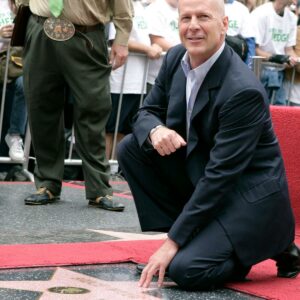Few artists have managed to embody the essence of rebellion as effectively as Mary J. Blige. Hailed as the “Queen of Hip-Hop Soul,” Blige’s influence transcends music. She is a cultural force, a beacon of resilience, and a symbol of strength. Her journey from a tough upbringing in Yonkers, New York, to becoming a global icon is paved with defiance against the odds, and this rebellious spirit permeates every aspect of her work. Through her lyrics, imagery, and public persona, Blige has turned rebellion into empowerment, carving a unique space in the music industry while simultaneously inspiring millions to embrace their authenticity.
The Central Theme of Rebellion in Her Music
At the core of Mary J. Blige’s music lies a rebellious spirit that defies expectations, challenges norms, and refuses to be silenced. Blige’s rebellion is not just about breaking rules; it’s about survival, self-discovery, and self-empowerment. It’s a rebellion against the personal demons she’s faced, against an industry that often seeks to box artists into neat categories, and against societal pressures that try to dictate how women, especially Black women, should behave.
Blige’s rebellion manifests both lyrically and visually, creating a cohesive narrative that has shaped her career and cultural impact. Through raw honesty, unfiltered emotion, and a willingness to confront difficult truths, she has turned rebellion into a tool of empowerment—both for herself and her audience. Her defiance has allowed her to remain authentic in an industry that often prioritizes marketability over substance, and it has positioned her as a cultural rebel whose influence reaches far beyond the music charts.
Early Career and the Emergence of Rebellion
Mary J. Blige’s rebellious nature was evident from the beginning. Her debut album, What’s the 411? (1992), was a groundbreaking fusion of R&B and hip-hop that defied traditional genre boundaries. In an era when R&B was dominated by polished, radio-friendly hits, Blige introduced a rawness and grit that was unprecedented. She wasn’t interested in conforming to the industry’s expectations of what a female R&B artist should be. Instead, she embraced a sound that reflected the reality of her experiences, from the highs of love and success to the lows of pain and struggle.
Blige’s second album, My Life (1994), further solidified her rebellious image. It was deeply personal and introspective, a candid exploration of her battles with depression, addiction, and abusive relationships. But rather than succumbing to the pressures of perfection, Blige used her music as a form of rebellion—a refusal to hide her pain or present a sanitized version of herself to the world. The album was both a critical and commercial success, resonating with listeners who saw in Blige’s vulnerability a mirror of their own struggles.
This early defiance of traditional R&B norms set the tone for Blige’s career. Her music was more than just entertainment; it was a lifeline for those who felt unheard and unseen. Through her willingness to be vulnerable and authentic, Blige symbolized a rebellion against societal expectations, empowering her audience to embrace their own truths.
Rebellion Against Personal Struggles
Rebellion in Mary J. Blige’s music is not just a defiance of industry norms—it is also a rebellion against the personal struggles that have shaped her life. Throughout her career, Blige has been open about her battles with addiction, abusive relationships, and self-doubt. But rather than letting these challenges define her, she has used her music as a means of rebellion, turning her vulnerability into strength.
Songs like “No More Drama” and “I’m Goin’ Down” are emblematic of this defiance. In “No More Drama,” Blige declares her refusal to be held down by the pain of her past. The song’s powerful lyrics and emotional delivery are a testament to her determination to overcome adversity. Similarly, in “I’m Goin’ Down,” Blige’s raw vocal performance captures the anguish of heartbreak, but beneath the pain is a sense of resilience—a refusal to be defeated.
This rebellion against personal struggles is not just about survival; it’s about empowerment. By confronting her demons head-on and refusing to be defined by them, Blige has turned her vulnerability into a source of strength. Her music becomes a form of therapy, not just for herself but for her listeners as well. Through her defiance, Blige empowers her audience to face their own challenges and emerge stronger on the other side.
Visual Imagery and Rebellion
Mary J. Blige’s rebellion is not confined to her music—it extends to her visual imagery as well. Throughout her career, Blige has used fashion and visual representation to challenge conventional beauty standards and societal norms. Her bold, edgy style choices in music videos and public appearances have become a defining feature of her brand, reinforcing the theme of rebellion that runs through her work.
Blige’s fashion sense is a reflection of her defiant spirit. She has never been one to conform to traditional notions of femininity or beauty. Instead, she embraces a style that is both fierce and unapologetic, combining elements of streetwear, high fashion, and hip-hop culture. Whether she’s rocking a fur coat, oversized sunglasses, or a pair of Timberland boots, Blige’s fashion choices are a statement of defiance—a refusal to be pigeonholed or restricted by societal expectations.
This visual rebellion complements her lyrical themes, creating a cohesive image that represents both her personal and artistic identity. Blige’s style is a reflection of her music—bold, unfiltered, and authentic. It’s a visual representation of the defiance that defines her work, further solidifying her status as a cultural rebel.
Social Rebellion and Activism
Mary J. Blige’s rebellion is not just personal—it’s also social. Throughout her career, Blige has used her platform to address broader social issues, using rebellion as a symbol of resistance against injustice. Her music often touches on themes of self-love, self-empowerment, and the fight against oppression, particularly as they relate to the experiences of Black women.
Songs like “Be Happy” and “Love Yourself” highlight Blige’s commitment to self-empowerment, but they also carry a broader message of resistance against societal constraints. In “Be Happy,” Blige expresses the desire for personal fulfillment and happiness, a rebellious act in a world that often seeks to limit the ambitions of Black women. In “Love Yourself,” Blige emphasizes the importance of self-love and self-respect, positioning them as acts of defiance against a society that often devalues Black women’s worth.
Blige’s role as a symbol of strength for women, particularly Black women, is a key aspect of her cultural rebellion. She challenges the societal constraints that seek to silence and oppress, using her music as a platform for empowerment. Through her defiance, Blige has become a voice for those who have been marginalized, inspiring them to embrace their own strength and power.
Legacy of Rebellion in Her Music
As Mary J. Blige’s career continues to evolve, one thing remains constant: her commitment to rebellion. The theme of defiance has become a hallmark of her legacy, influencing not only her own work but also future generations of artists. Blige’s willingness to be vulnerable, authentic, and unapologetically herself has paved the way for a new wave of artists who use rebellion as a tool for self-expression and empowerment.
Blige’s influence can be seen in the work of artists like Beyoncé, Rihanna, and H.E.R., who continue to challenge industry norms and use their music as a platform for empowerment. These artists, like Blige, understand the power of rebellion in shaping their identities and their careers. They have followed in her footsteps, using their music to confront societal expectations and empower their audiences.
Blige’s legacy is not just about her music—it’s about the impact she has had on the culture at large. Her rebellion has transcended the boundaries of the music industry, influencing fashion, social activism, and the broader cultural conversation. She has become a symbol of strength, resilience, and defiance, and her influence will continue to be felt for generations to come.
Conclusion
Rebellion is at the heart of Mary J. Blige’s music and imagery. It is a powerful symbol of her resilience, defiance, and refusal to be silenced. Through her music, Blige has turned rebellion into empowerment, using her platform to challenge industry norms, confront personal struggles, and address broader social issues. Her rebellious spirit has not only shaped her career but has also empowered her audience to embrace their own strength and authenticity.
Blige’s impact on the music industry and popular culture is undeniable. She has created a legacy of rebellion that continues to inspire and empower, reminding us all of the power of defiance in the face of adversity. As the “Queen of Hip-Hop Soul,” Mary J. Blige will forever be remembered as a cultural rebel whose music and imagery have left an indelible mark on the world.





